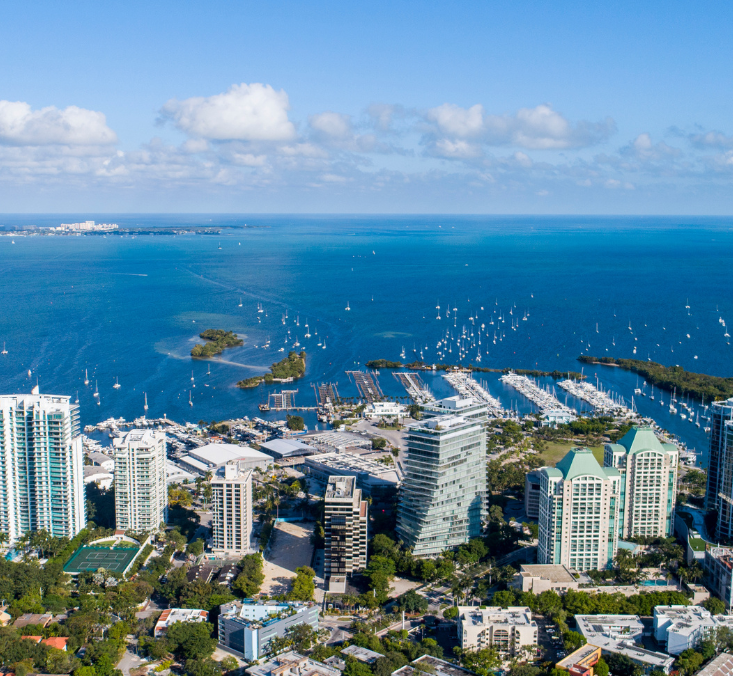Swimming underwater can be a thrilling experience, but diving and snorkeling carry inherent risks. A dive master or other party’s negligence can result in catastrophic injuries or even death.
Common injuries caused by scuba or freediving include:
- Arterial gas embolism
- Decompression sickness a.k.a. “the bends”
- Hypoxia
- Ear and/or Lung barotrauma
- Tinnitus
- Oxygen toxicity
- Traumatic brain injuries
- Shark bites
- Drowning and near-drowning
- Coral poisoning
- Death
If you have been injured or lost a loved one in a diving accident, contact Mase Seitz Briggs for a free consultation. Our Miami scuba diving accident lawyers have recovered millions on behalf of injury victims and their families throughout South Florida. Call 305-602-4927 to get the dedicated representation you deserve.
In a diving injury claim, any of the following parties might be liable for damages:
- Dive master
- Dive instructor
- Tour operator
- Boat owner
- Fellow divers or other boaters,
- Parties responsible for maintenance of dive equipment
I signed a liability waiver: Can I still sue after a diving accident?
Even if you signed a liability waiver, you may be able to pursue compensation for your diving injuries. Florida law requires that to be valid, a waiver must be clear, unambiguous, and unequivocal. Additionally, the release must clearly and specifically state what is being waived. There are also exceptions regarding minors, intentional wrongdoing, and statutory violations. A waiver that fails to meet the legal standards established by Florida or Federal courts will be considered invalid and unenforceable.
If you signed a liability waiver and were injured in a diving accident, you should contact an experienced dive accident attorney. Our diving accident lawyers can review the waiver to determine whether it meets the legal requirements and is enforceable under Florida and federal maritime law.
How do diving accidents happen and who is responsible?
Most diving accidents can be prevented if the diving company exercises reasonable safety precautions. Unfortunately, that is not always the case. When a diving accident results from another person’s negligence or wrongdoing, they must be held accountable. Depending on the circumstances of the case, there may be one or more parties that can be legally liable for your accident and injuries.
Diving accidents are most commonly caused by:
- Improper training or instruction: The dive company may be liable if they failed to properly train you how to dive or how to use the equipment. They may also be liable if they failed to hire properly trained instructors.
- Failing to monitor ascents and decompression: Ascending slowly and safely is critical in diving. If divers exceed a safe ascent rate, nitrogen absorbed in the bloodstream will form bubbles, leading to decompression sickness. The dive company should monitor a diver’s ascent.
- Diving in an area with currents or heavy boat traffic: Dive instructors must know whether the sea conditions are safe for diving. They must also know whether there is an unsafe risk of boat traffic in the area. If the dive company leaves you in a dangerous area and you are injured, they may be liable.
- Failing to comply with Florida’s Diver Down law: Florida law has requirements when using a “Diver Down” flag. The flag has requirements for its display. Divers are expected to stay within a certain safe distance from the dive boat, and other boats are required to stay a certain safe distance from where divers are in the water.
- Dive partner negligence: For safety, divers usually dive in groups. While this often helps divers avoid injury, you can get injured if another diver in your group is negligent. If this happens, the negligent diver may be liable. Some companies pair inexperienced divers or leave them alone in open water without a dive buddy. If you are injured in a situation like this, the diving company may be liable.
- Malfunctioning equipment: The diving company is required to keep its equipment in good working order. If you sustain a diving injury because of a faulty piece of equipment, the diving company and/or equipment rental company may be liable.
Unsafe Scuba Diving Equipment
Defective scuba equipment can lead to serious injuries or even death for a diver. After any diving accident, it is crucial to investigate the dive equipment that was used to determine whether it was properly maintained, had a dangerous design, or was defective.
When scuba equipment fails or is improperly maintained, it can cause life-threatening injuries or death. Each year, federal regulators and manufacturers issue recalls. If you were injured because of defective or dangerous equipment, contact our office to speak to a diving accident lawyer.
Commonly recalled scuba equipment includes:
- Regulators
- Buoyancy Control Devices (BCDs)
- Scuba tanks
- Low-pressure and high-pressure rubber hoses
- Inflators
- Diving masks
- Dive computers
- Signaling devices
- Weighting equipment
- Compressors
Tips for Safe Diving
While there are inherent dangers involved with diving, these safety tips should ensure you are doing everything possible to have a fun and safe experience:
- Use and maintain quality equipment.
- Never hold your breath.
- Perform safe ascents.
- Dive with a buddy.
- Plan your dive.
- Practice, practice, practice.
- Stay physically fit.
Injured in a Diving Accident? Contact Our Office for a Free Consultation!
If you have been injured or someone you love has died in a scuba diving accident, you may be entitled to compensation. Our skilled trial lawyers know what it takes to win. Contact our office to get started.


